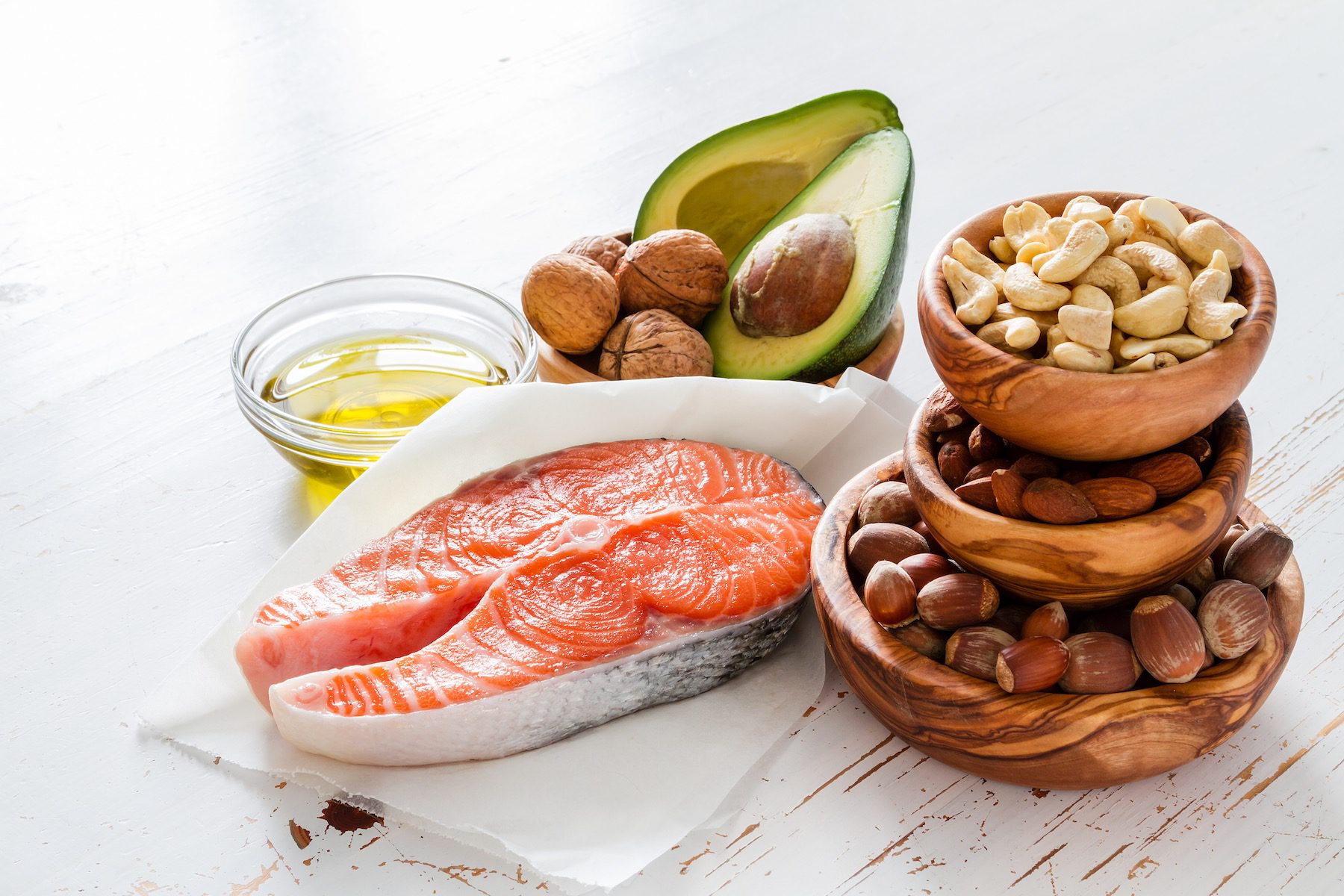We’re here to answer one of the most common nutrition questions out there – is eating fat really bad for you?
While there are some fats that aren’t particularly beneficial for your body, especially in high amounts, we want to help you understand the role healthy fats have in our diets and which foods you can find them in.
Table of Contents
What is fat exactly?
As a macronutrient (nutrients our bodies need in larger quantities to use as energy), fat helps the body to create and store energy, support cell function and absorb fat soluble vitamins like A, D, E, and K.
There are three main types of fat: saturated, unsaturated and trans.

Saturated fat is found in animal products like meat, full-fat dairy and eggs, and also in tropical oils like coconut and palm. It’s also present in processed, high carb and sugar foods.
Saturated fats have been linked to raised cholesterol levels, which can increase the risk of heart disease.
Unsaturated fat are liquid at room temperature in oil form but also found in solid foods.
In fact, unsaturated fat itself can be broken down into two parts.
Polyunsaturated fat
- Omega-3 fats which are found in oily fish, like salmon, trout and tuna
- Omega-6 fats which are found in some oils such as sunflower oil, along with some nuts, including brazil nuts and walnuts.
- FYI – our brains need omega-3 and omega-6 to function properly!
Monounsaturated fat
- Found in olive and canola oil, avocados and some nuts, such as cashews and almonds.
Lastly, trans fats are a form of unsaturated fat that have been processed and therefore act similar to saturated fats. They’re mainly found many packaged and fried/fast foods – think anything deep-fried, cakes, potato chips and biscuits.
Trans fats increase the bad cholesterol in your body (LDL cholesterol) which is a major risk factor for heart disease, so the more you eat the more dangerous it can become to your health.

Should you avoid eating fats completely?
The short answer, no!
As you can probably gather from the above info, unsaturated fat is the most beneficial to our overall health. So do ensure you’re eating foods that contain it, as part of a balanced diet of course.
However, there is still place for saturated fats in your diet. As we say here at Equalution, it is possible to enjoy all the foods you love and still live a healthy, balanced life. Just eat saturated fat in moderation.
Just keep in mind, eating greater amounts of saturated fat is linked with an increased risk of heart disease and high blood cholesterol levels.
Trans fat is one to keep to a minimum, but eating foods containing it from time to time isn’t completely detrimental. Just remember that consuming it regularly can increase bad cholesterol (LDL) in your bloodstream, which is a major risk factor for heart disease, and try to swap it for unsaturated fats where possible.
For example:
- Swap processed meats (salami, etc) in sandwiches for chicken with avocado
- Swap coconut oil and butter for extra virgin olive oil in cooking
- Swap processed snacks for healthier alternatives like natural nuts, seeds or wholegrain items like Vita-Weat crispbreads
- Swap creamy salad dressings for olive oil/vinegar based options
Other tips to get more of the good unsaturated fats on your plate include:
- Add nuts to salads/muesli/stir fries
- Eating fish/seafood at least twice a week
- Have avocado/hummus/nut butters on crackers or with carrot/celery sticks as a snack

How much fat should you eat?
In terms of ‘how much’ you should be eating, there’s no one-size-fits-all approach. That’s where experts like our nutrition coaches come in. They specialise in creating custom daily macronutrient targets based on your needs and goals, and to ensure you’re getting plenty of nutrients. If you want to learn more about our program you can click here.
To give you a general idea, it is recommended that approximately 20 to 35 per cent of an Aussie adult’s energy should come from fat. That’s about 45g to 75g (based on the standard 2000 calories recommendation per day).
So while there may be both a yes and no answer to the question, “is eating fat really bad for you?” we hope this has given you more clarification so you can make more educated food choices.

